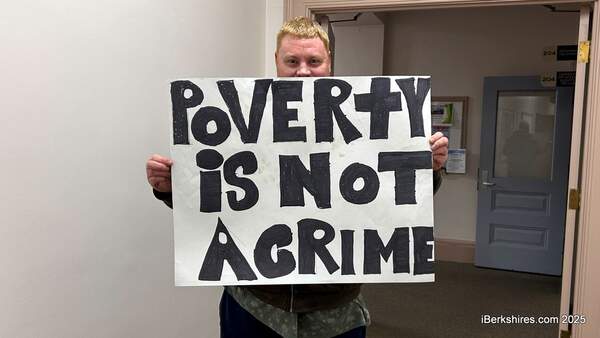BEAT: The Invasive Spotted Lanternfly
 |
PITTSFIELD, Mass. — Elizabeth Barnes, the Forest Pest Outreach Coordinator with the Massachusetts Department of Agricultural Resources, will present at the April Berkshire Green Drinks on Wednesday, April 10.
This free hybrid event will take place online via Zoom and in person at Hot Plate Brewing Co., 1 School Street in Pittsfield. The in-person social gathering will begin around 5:15 PM; the presentation and Zoom meeting will start at 6:00 PM.
According to a press release:
Invasive insects can have devastating impacts on our ecosystem, economy, and quality of life. But how are they able to be so disruptive, and what can we do about it? Join Berkshire Environmental Action Team (BEAT) for their monthly speaker series, where guest speaker Elizabeth Barnes will answer these questions by focusing on the spotted lanternfly, an invasive insect that eats grapes, roses, black walnut, and over 100 other plants — and is now found in Massachusetts. Learn about the problems it’s causing, what conservation and natural resources agencies are doing to deal with it, what individuals can do, and, importantly, some rays of hope for mitigating its impact.
Learn more and RSVP at: https://tinyurl.com/
Elizabeth Barnes is the Forest Pest Outreach Coordinator with the Massachusetts Department of Agricultural Resources and previously worked as the Exotic Forest Pest Educator at Purdue University. She studied biology as an undergraduate at Mount Holyoke College and received her Doctorate in plant-insect interactions from the University of Denver, where she studied tent caterpillars and fall webworms. In her spare time, Elizabeth is an avid caterpillar watcher and is always happy to answer questions about all things insect-related.
Berkshire Green Drinks (formerly Pittsfield Green Drinks) is an informal gathering on the second Wednesday of the month that is free and open to everyone with any environmental interest. A guest speaker talks about an environmentally related topic for approximately 30 minutes beginning at 6 PM; the presentation is followed by a discussion and Q&A.
Berkshire Green Drinks is sponsored and organized by the Berkshire Environmental Action Team (BEAT).
Tags: BEAT,















